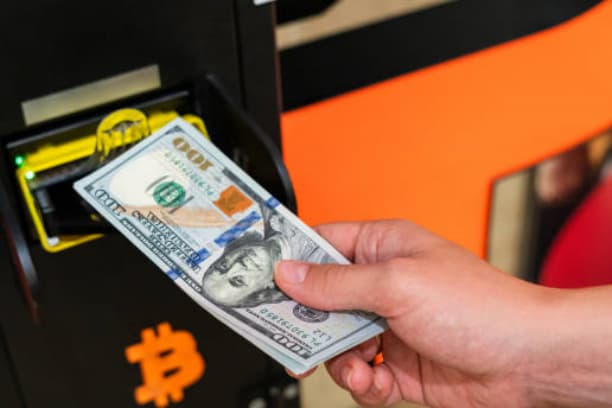Cold Wallet Storage for Bitcoin: A Safe and Offline Option
As the value of Bitcoin rises, more and more people are choosing to store it in cold wallets to keep their money safe. Cold wallet is an offline storage method that not only protects you from hackers, but also gives you more control over your assets. But how do you choose the right Cold Wallet for you? What security details do you need to pay attention to in the process of using it? In this article, we will discuss the selection and use of cold wallets to help you store Bitcoin more securely and keep your money away from risk.

What is Cold Wallet? Why choose Cold Wallet to store Bitcoin?
Cold Wallet refers to the private storage of Bitcoin in a device that is not connected to the Internet, which greatly reduces the risk of cyberattacks. Unlike Hot Wallets, which require a connection to the Internet and are therefore susceptible to hacking or other security threats, Cold Wallets are designed to store Bitcoin private keys in a device that is not connected to the Internet, which greatly reduces the risk of a cyber attack. Cold Wallet ensures that funds remain safe and secure even if hackers attack the network by keeping private keys in an offline device.
Cold wallets are the ideal storage option for investors who hold Bitcoin for the long term. It not only avoids risks such as exchange bankruptcies and cyber attacks, but also gives users a higher level of control over their Bitcoins. Cold wallets offer a higher level of security than hot wallets, making them the best choice for long-term storage of cryptocurrency assets.
Types of Cold Wallets: Hard Wallets and Paper Wallets
Cold wallets are divided into two main categories: hardware wallets and paper wallets. Each type of cold wallet has its own unique advantages and disadvantages.
Hard wallets are one of the most popular types of cold wallets, which are specialized hardware devices that store private keys securely inside the device and support a variety of cryptocurrencies such as Bitcoin. Common hardware wallets include the Ledger Nano S, Ledger Nano X, Trezor Model T, etc. These hardware wallets not only protect your wallet from the risk of losing your keys, but they also protect your wallet from the risk of losing your keys. These hardware wallets are not only protected from online attacks, but also have multiple layers of encryption protection, making them highly secure.
Paper wallets are a way of storing Bitcoin by printing the private and public keys on paper. Paper wallets do not rely on any hardware and are relatively simple to use, but they also have their risks. If the wallet is lost or damaged, the funds cannot be recovered. Therefore, paper wallets are more suitable for long-term storage of small amounts of Bitcoin.
Whichever type of cold wallet you choose, you need to keep it carefully and avoid connecting it to the internet to ensure the safety of your Bitcoins.
How to choose the right cold wallet?
The first thing you need to consider when choosing a cold wallet is your needs. For long-term storage of Bitcoin assets, a hardware wallet is the best choice. Hard wallets are more secure and most devices support multiple cryptocurrencies, making it more convenient for users who need to manage different digital assets.
When choosing a cold wallet, you should also consider the brand name and the reputation of the manufacturer. Hardware wallets from well-known brands such as Ledger and Trezor have a high level of security and come with comprehensive after-sales services. When choosing a wallet, you can also check user reviews to see how the product actually performs.
For beginners, it is also important to choose a cold wallet that is easy to operate. Some hardware wallets have an intuitive interface and even support multi-language features, which is very user-friendly for beginners.
Safe Use of Cold Money: How to Secure Your Bitcoin Assets
The safe use of cold wallets is key to protecting your Bitcoin assets from being compromised. Here are some practical tips for keeping your cold wallet safe:
1. Keeping your mnemonics safe: When you set up your cold wallet, the system generates a set of mnemonics (usually 12 or 24 words). These helpers can be used to recover the Bitcoin assets in your Cold Wallet and will be your only means of recovery if your Cold Wallet is lost or damaged. It is important to keep your mnemonics in a safe, hard to find place and avoid storing them with your cold wallet.

2. PIN protection with hardware wallets: Most hardware wallets require a PIN to protect the device. Choosing a strong, hard-to-guess PIN is an important step in preventing someone from stealing your assets. Avoid using simple combinations of numbers and update your PIN code regularly.
3. Protect the physical security of cold wallets: Although cold wallets are stored offline and are more secure than hot wallets, it is still important to pay attention to their physical security. Store your hard wallet in a fireproof, waterproof safe to avoid loss or theft.
4. Regular Backup of Cold Wallet Data: In order to cope with equipment damage or loss, it is also very important to back up cold wallet data regularly. It is possible to store both the mnemonic and wallet files in separate secure locations to ensure that no data is lost.
The downside of cold wallets: why not rely entirely on them?
While cold wallets offer a high level of security, they also have their drawbacks that cannot be ignored:
1. Inconvenient for daily transactions: Cold wallets are not suitable for daily transactions as their main purpose is long-term storage. Every time you make a transaction, you will need to connect your cold wallet to the Internet, which will cause some inconvenience.
2. Assets may not be recoverable if lost or damaged: If a cold wallet is lost or damaged and you have not backed up a mnemonic or key, the assets will not be recoverable. Therefore, the physical protection of the cold wallet is particularly important.
3. Higher cost: Hardware cold wallets are more expensive than hot wallets and may not be cost effective for some small investors.
Although cold wallets are more secure, it is still important to make trade-offs when choosing a storage solution that best suits your needs.
Frequently Asked Questions Q&A
Q1: What should I do if I lose my cold wallet?
A1: If you lose your cold wallet, you can recover your bitcoins by using a backup of your memo. The token is your only means of recovery, so be sure to keep it safe.
Q2: Is Cold Wallet completely unhackable?
A2: Cold wallets are more secure than hot wallets, but not absolutely secure. Hackers can't attack cold wallets directly through the network, but if the wallet itself is stolen or physically attacked, assets may still be lost.
Q3: How safe is Paper Wallet?
A3: The security of paper wallets depends on how the paper is stored. If the wallet is damaged, wet or lost, the Bitcoin cannot be recovered. Therefore, paper wallets need to be kept in a very safe place with multiple backups.
In conclusion, Cold Wallet is one of the best options for storing Bitcoin, especially for long-term holders. When choosing and using Cold Wallet, you must pay attention to security details and backup your assets regularly. Only in this way can you truly realize the safe storage of Bitcoin and protect your wealth.














